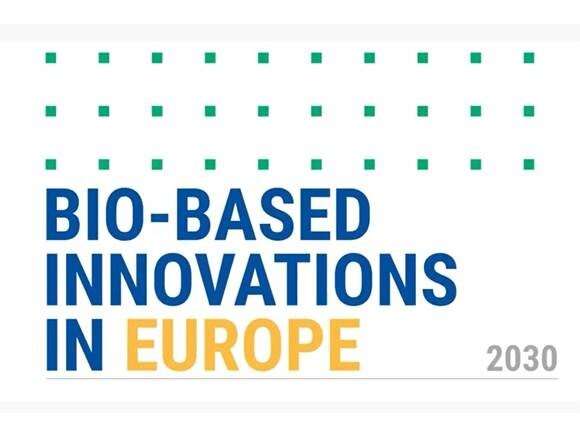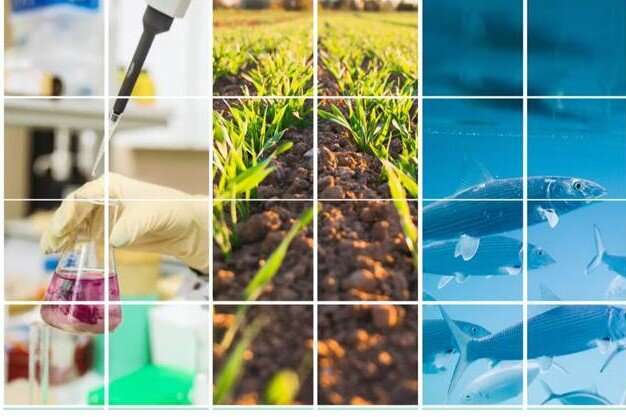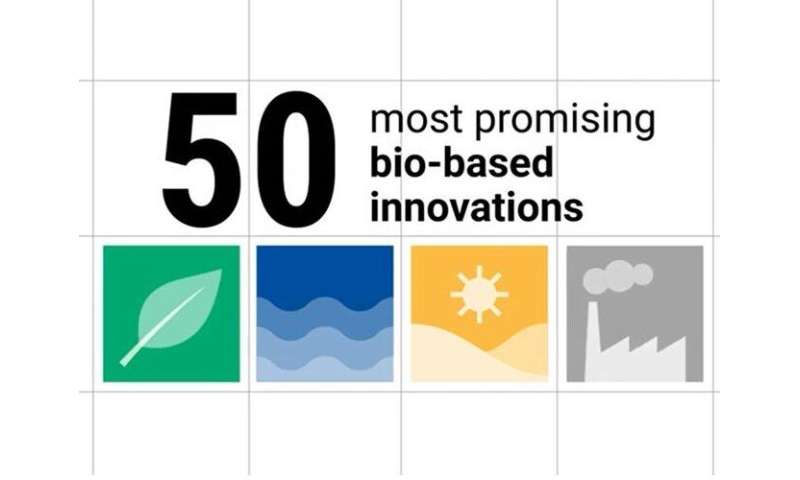EU study: “Life and Biological Sciences and Technologies as Engines for Bio-based Innovation”: developments and innovati

Brussels, 11 May 2021
Life and biological sciences and technologies are key drivers and enablers for innovations, which are important for a successful transition away from a fossil-based economy towards sustainable bio-based sectors.
To support and speed up this transition, policy makers, industry and academia have to take action. Detailed information backing up such actions comes from the study "Life and Biological Sciences and Technologies as Engines for Bio-based Innovation", funded by the European Commission, DG Research and Innovation, elaborated by a consortium coordinated by Fraunhofer Institute for Systems and Innovation Research ISI and including BTG—Biomass Technology Group and ICONS S.r.l. The team has identified and assessed top 50 bio-based innovations in life and biological sciences and technologies and their convergence with digital technologies. Moreover, the authors have mapped policies and strategies at EU and national level, and made an assessment of the EU innovation ecosystem, which has lead them to draw up bio-based innovation scenarios to 2030 and to draft a set of specific R&I recommendations.
The top 50 bio-based innovation list covers innovations with high impact on knowledge generation, economy, environment and society. They are expected to gain substantial relevance, also driven by the implementation of EU strategies and targeted policies in 5-20 years. They cover bio-based innovations in agriculture, industry, marine and environment; traditional bio-based applications and products, advanced therapies and biopharmaceuticals are excluded from the scope of the study.
Dr. Bärbel Hüsing, senior scientist at Fraunhofer ISI, who led the innovation analysis performed within this study, declares: "This portfolio of top 50 bio-based innovations represents important developments and innovation needs for a successful transition towards a sustainable bioeconomy and for achieving impacts in SDGs. It covers the complexity and potential of this field in a well-balanced way".
The portfolio of top 50 bio-based innovations comprises cross-cutting technologies and approaches as well as innovation areas or solutions applicable to the challenges we are currently facing. For example, one of the 50 innovations will provide bio-based and thus more environmentally friendly alternatives to over-use of agricultural pesticides and fertilizers. Their use will ensure high crop yields, will avoid contamination of groundwater and food and will increase the fertility and biodiversity of soil ecosystems. Another innovation will contribute to establishing a circular economy: enzymes—natural catalysts—can break down plastic waste to its building blocks in an environmentally friendly and resource-saving manner. These building blocks are then re-used to produce new plastic products—a closed cycle.

The innovations are featured in 50 bio-based technology factsheets presenting the analysis of maturity level, expected impact and priority issues that need to be addressed in order to overcome existing hurdles. The factsheets are based on results from the review of scientific literature and of an EU-wide online survey among experts from industry and academia.
The study gives recommendations how the EU-27 should exploit and commercialize these bio-based innovations in international competition. Dr. Sven Wydra, the project manager of the study states: "The EU-27 is competitive in many of the top 50 bio-based innovations. However, to enhance their broad and efficient use, a further effort is needed to support research and innovation, to foster cooperation and to create demand."
The full report and the 50 bio-based technology factsheets can be downloaded from the website of the Publications Office of the European Union alongside the collection of factsheets presenting the 50 selected bio-based innovations.
The study has been funded by the European Commission in the light of the EU 2018 Bioeconomy Strategy and its Action Plan together with the studies "Carbon economy" and "EU Biorefinery Outlook to 2030", to support research and innovation policies on bio-based products and services.
For more information about the study, visit the https://biobased-innovations.eu website or watch the presentation video.
Contact:

Dr. Sven Wydra
Project Manager, Fraunhofer Institute for Systems and Innovation Research (ISI)
sven.wydra@isi.fraunhofer.de
Notes for editors (Disclaimer)
The study "Life and Biological Sciences and Technologies as Engines for Bio-based Innovation", has been supported by the European Commission, DG Research and Innovation. The views expressed in this publication are the sole responsibility of the author and do not necessarily reflect the views of the European Commission.
Provided by iCube Programme